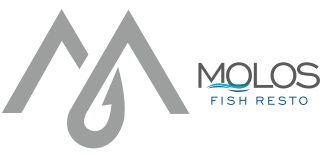The private key is the password required to buy, sell, and exchange the bitcoin at a wallet. A variety of concerns have been raised regarding the cryptocurrency and ICO markets, for example, since they’re currently operating, there is less investor protection than in our traditional securities markets, with correspondingly greater opportunities for manipulation and fraud. A private key should be a guarded secret and only used to authorize bitcoin transmissions. Checklist: How to discover a crypto scam. Some customers protect their private keys by encrypting a wallet with a powerful password and, sometimes, by choosing the cold storage choice; this is, storing the wallet offline. Unsure whether a particular crypto website is a scam or not?
Use this checklist to help sort legitimate providers from those programs you’re better off preventing altogether. A bitcoin wallet should not be used for long term storage. If the address begins with "http" instead of "https," the information you send to the website is not secure. Instead, bitcoin or its key should be stored in a safe wallet like one that uses a multi-signature centre for security. Can you find the word "Safe " or a picture of a padlock in your web browser’s address bar?
This implies that a website is secure. 2. Does the site ‘s URL have some noticeable spelling mistakes or errors? If so, it may be a fake. Personal Documents. Does the site comprise bad grammar, awkward phrasing or grammatical mistakes? If it does, this doesn’t automatically indicate a scam, but it does mean that you should proceed with care.
In order to buy and market bitcoin, you will need to verify your identity using several personal documents such as your driver’s license and Social Security number (SSN). Does the website promise abnormally high yields? (For instance, does this assert you will have the ability to double your investment?) This should raise a large red flag and is a frequent indicator of a scam. 3. Does this show the real people behind the organization? Does this provide any information about where the organization is registered? When there’s no or little information about who the provider is and what it does, you might be dealing with a scam. If you choose to exchange bitcoin online, use discretion about where and when you get your digital wallet. see Does one legitimate, reputable websites link to this site?
This may show that the site is trusted and respected. Trading bitcoin within an insecure or people wifi network is not recommended and may make you more vulnerable to attacks from hackers. What do other users say about the website? Are there some negative testimonials and, if yes, what do they say?
4. Who’s the registered owner of a domain or website? Is the owner concealed behind personal registration? Has the domain been enrolled for less than six months? (You can find this information by looking for the stage ‘s URL registration particulars on a site like WHOis.net). The bitcoins are subsequently transferred to your wallet. The more info you may find about the people/company behind a web site, the better.
The access to the above payment methods will be subject to this area of authority and exchange selected. When there’s something that just doesn’t look right, trust your gut. Below is a screenshot of this bitcoin interface on Coinbase showing how to buy and sell bitcoin and also Bitcoin Cash, Ethereum, and Litecoin, that are other popular digital currencies. Does the website claim any celebrity endorsements? Many investment scams use bogus celebrity endorsements to get people to lower their guard. You select which currency you are buying/selling and which payment method (your bank account or credit card) you want to use. Did you first hear it on social media, or did they approach you ? Social media and unsolicited messages are typical ways for scammers to achieve new victims.
Depending upon the exchange, there may be advantages and disadvantages to paying for cash, credit or debit card, or bank account transfer. Please be aware that this record is far from foolproof, since it’s possible for a website to pass several of the above mentioned tests with flying colours and be a scam. For example, while credit and debit cards are among the most user-friendly methods of payment, they tend to require identification and may also impose higher prices than other methods.
The important thing to consider is to do your due diligence before supplying any personal or financial advice to any website or program.

Recent Comments